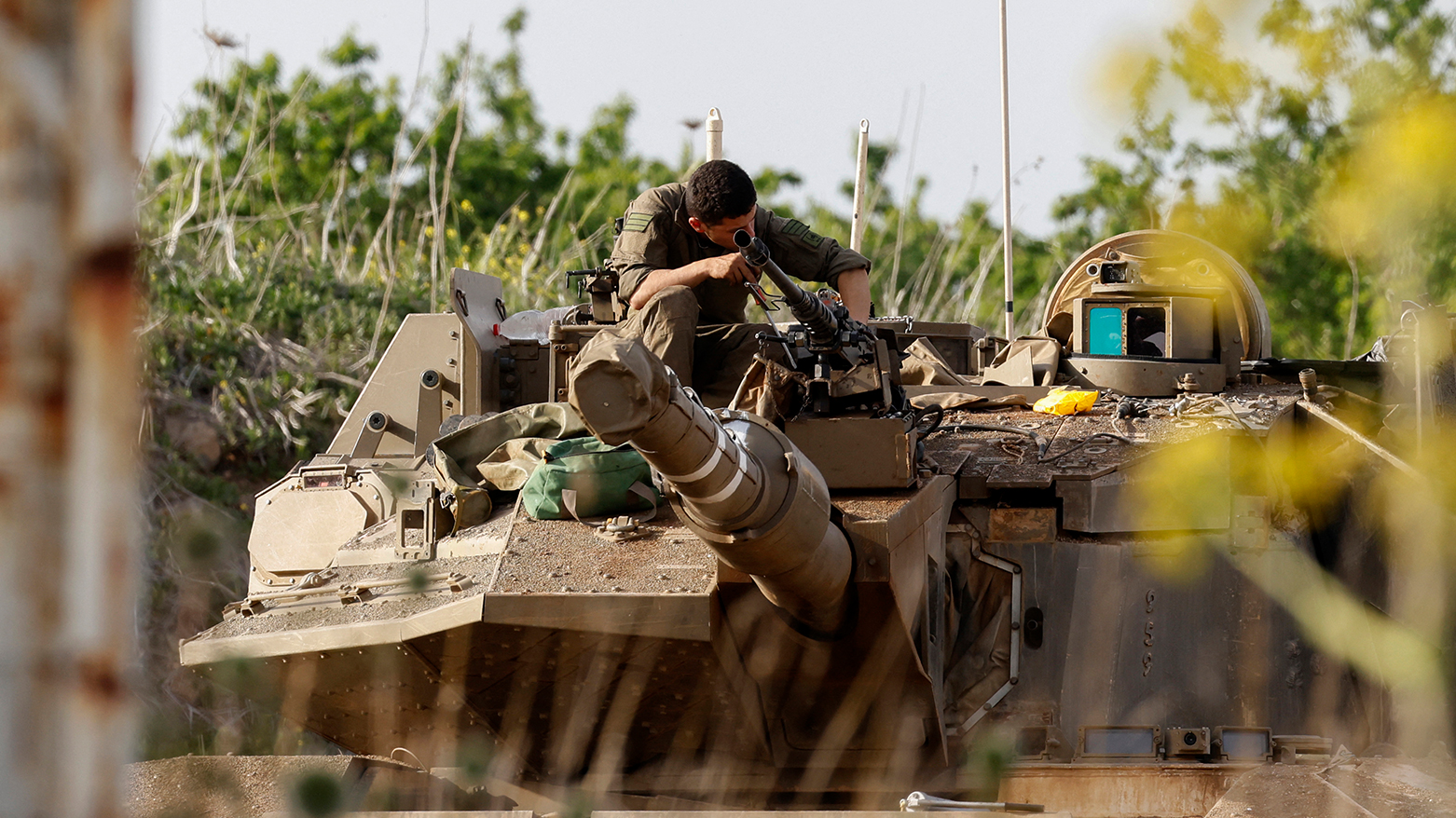Israeli Airstrikes Target Military Sites in Syria’s Latakia
Local sources in Latakia indicated that the attacks focused on naval military facilities, arms depots, and other strategic military sites.

ERBIL (Kurdistan 24) – Israeli warplanes carried out multiple airstrikes late Tuesday targeting military sites near Al-Abyad Port and the city of Latakia in western Syria.
According to Syria’s state-run Syrian Araba News Agency (SANA), Israeli fighter jets carried out several raids targeting the vicinity of Al-Abyad Port and other locations in Latakia province. Initial reports suggested no civilian casualties, but authorities were assessing the extent of the damage.
Syrian media sources and activists on social media reported that at least six Israeli airstrikes struck Syrian military positions along the Mediterranean coast. The strikes specifically targeted the area surrounding Al-Abyad Port and the 110th Naval Brigade base near Ras Shamra.
Local sources in Latakia indicated that the attacks focused on naval military facilities, arms depots, and other strategic military sites. There has been no immediate comment from the Syrian government regarding the extent of the destruction.
Growing Israeli Military Campaign in Syria
The latest airstrikes come as part of an escalating Israeli military campaign in Syria. Earlier on Tuesday, the Israeli army confirmed that it had struck two military bases in Homs province for the second time in three days.
According to the Israeli military, the targeted bases—Tadmur and the T-4 airbase—still contained "residual military capabilities." The army stated that it would continue operations aimed at eliminating any perceived threats from Syrian territory.
This follows an Israeli air raid on Mar. 21, 2025, that targeted what Tel Aviv described as "strategic military assets" within Syrian army installations in Tadmur and the T-4 airbase. Israeli officials have repeatedly stressed that they seek to prevent former Syrian military weapons from falling into the hands of the new ruling authorities in Damascus.
Israel’s Concerns Over Syria’s New Leadership
Citing intelligence sources, Reuters reported that Israel considers Syria’s newly established government a "serious threat" and fears a potential military confrontation.
Israeli leaders have also voiced distrust toward Hay'at Tahrir al-Sham (HTS), the faction that led the offensive that ultimately removed Bashar al-Assad from power. The group was previously affiliated with al-Qaeda before severing ties in 2016.
Israeli Prime Minister Benjamin Netanyahu recently reaffirmed Israel’s opposition to the presence of HTS or any other military forces linked to the new Syrian administration in the country’s southern regions. He called for the disarmament of military factions operating near the Israeli border, stating that Israel would not tolerate any emerging security threats from Syria.
As tensions continue to escalate, the recent wave of Israeli airstrikes signals a sustained policy of preemptive military actions aimed at countering perceived threats from Syria’s evolving political and military landscape.